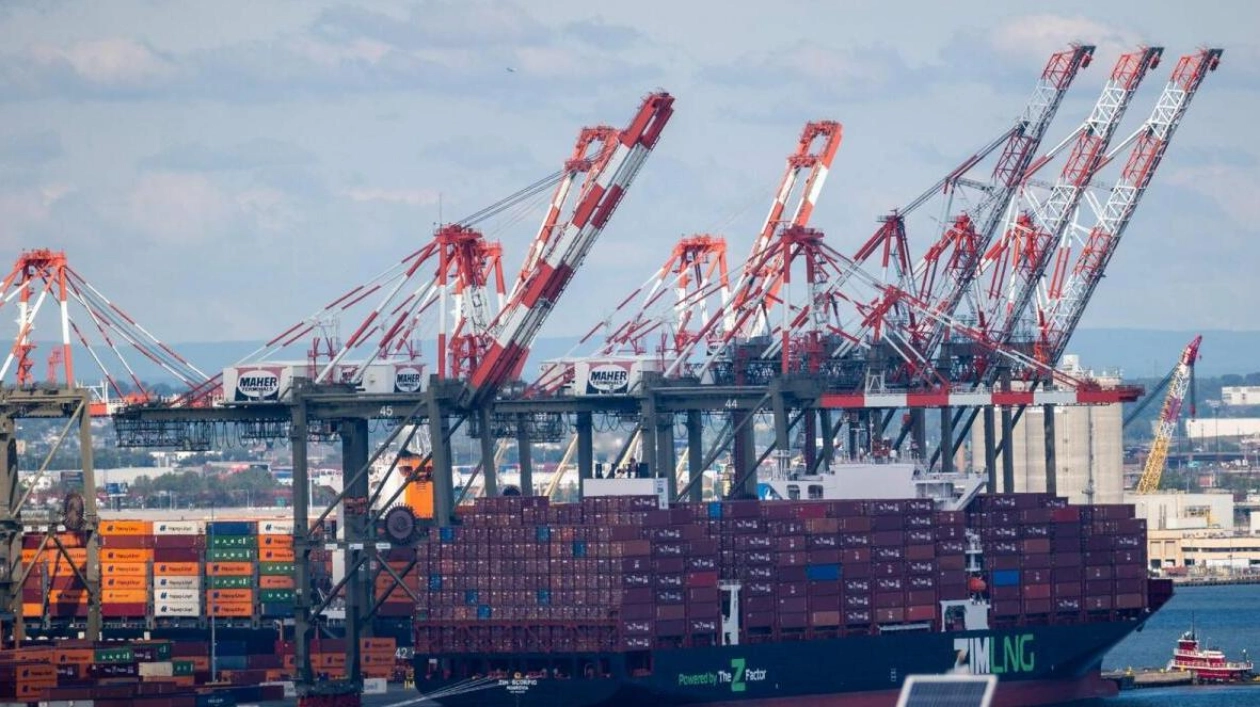Dockworkers along the US East Coast and Gulf Coast initiated a strike on Tuesday, marking their first significant work stoppage in nearly five decades. This action has effectively halted approximately half of the nation's ocean shipping activities due to failed negotiations over a new labor contract, specifically concerning wages.
The strike has disrupted the transportation of a wide range of goods, from food to automobiles, across numerous ports spanning from Maine to Texas. Analysts predict that this disruption could cost the economy billions of dollars daily, jeopardize jobs, and exacerbate inflation.
The International Longshoremen's Association (ILA), which represents 45,000 port workers, had been in negotiations with the United States Maritime Alliance (USMX) employer group for a new six-year contract prior to the September 30 deadline. In a statement on Tuesday, the ILA announced the shutdown of all ports from Maine to Texas at 12:01am ET (0401 GMT) and rejected USMX's final proposal made on Monday, stating that the offer fell significantly short of meeting the demands of its members for a new contract.
ILA's leader, Harold Daggett, has criticized employers such as container ship operator Maersk and its APM Terminals North America for not offering adequate pay increases or agreeing to demands to halt port automation projects. USMX, in a statement on Monday, claimed to have offered a nearly 50% wage increase, up from a previous proposal.
Daggett declared, "We are prepared to fight as long as necessary, to stay out on strike for whatever period of time it takes, to get the wages and protections against automation our ILA members deserve." He added, "USMX owns this strike now. They now must meet our demands for this strike to end." USMX did not immediately respond to requests for comment.
This strike, the ILA's first since 1977, is causing concern among businesses that rely on ocean shipping for exports and imports. It affects 36 ports handling various containerized goods, from bananas to clothing to cars. Peter Sand, chief analyst at shipping pricing platform Xeneta, expects the strike to last five to seven days until government intervention, but the ripple effect could be felt globally into January and February.
Nearly 100,000 containers in New York City-area ports are currently waiting to be unloaded, frozen by the strike, with 35 container ships scheduled to arrive in New York over the coming week. Rick Cotton, executive director of the Port Authority of New York and New Jersey, described the situation as "holding the entire country over a barrel."
The dispute puts US President Joe Biden in a difficult position, especially as Vice-President Kamala Harris faces a tight election race against former President Donald Trump. White House Chief of Staff Jeff Zients and top economic adviser Lael Brainard urged USMX to resolve the dispute fairly and quickly, but the administration has ruled out using federal powers to break the strike.
Suzanne Clark, President of the US Chamber of Commerce, urged Biden to reconsider, stating it would be unconscionable to allow the contract dispute to inflict economic shock. The White House hopes for a short strike, noting that both sides resumed talks and narrowed differences.
Retailers, accounting for about half of all container shipping volume, have implemented backup plans to avoid disruptions during the holiday sales season. Walmart and Costco are among those taking measures to mitigate impact. New York Governor Kathy Hochul expects no immediate impact on food suppliers but warns of potential wider effects depending on the strike's duration.
Maersk's shares dropped almost 5% in Copenhagen, reflecting investor concerns over the strike's impact on freight rates and earnings. The company plans to introduce a port disruption surcharge on all cargo moving to and from the U.S. East Coast and Gulf Coast terminals from October 21.






